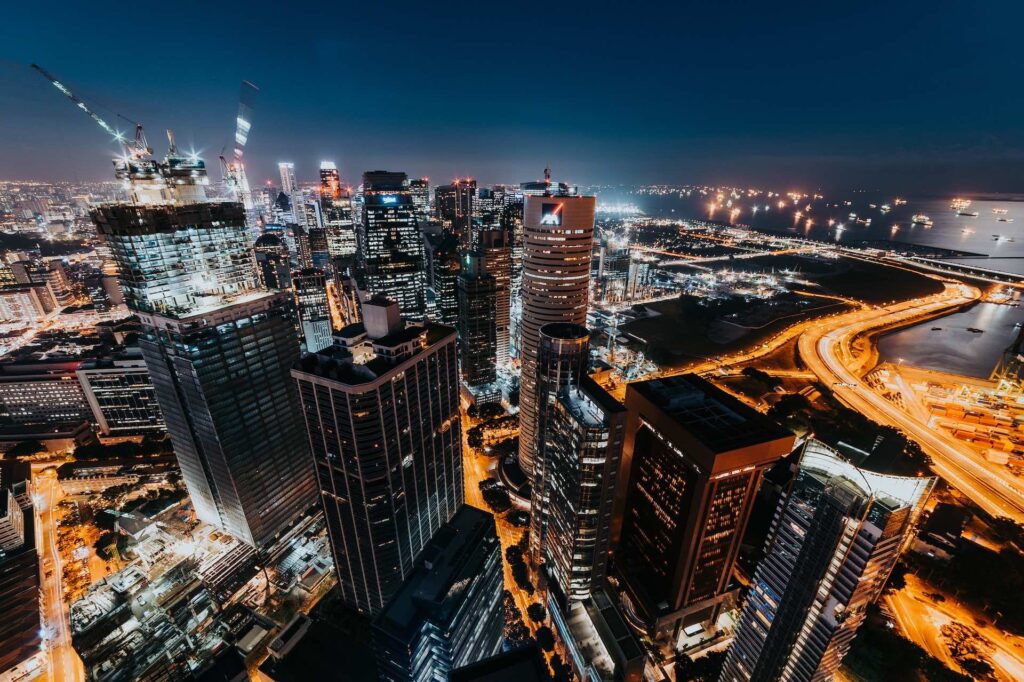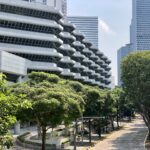If you’re wondering why property prices in Singapore are on the rise, then you’ve come to the right place!
In this blog post, we’ll take a look at some of the factors that are driving up real estate prices in Singapore and show you why it might be a good time to invest in property.
Overview of the property market in Singapore for 2023
The Singapore property market has seen a significant rise in prices over the past two years, and this trend is likely to persist in 2023.
This is due to an increase in both local and foreign demand for properties, low-interest rates, a shortage of supply of properties, as well as government measures to reduce speculation and cool property prices.
The UBS report states that housing market imbalances in Singapore began rising in 2018 as strong foreign demand supported price growth.
Sun said that Singapore home prices will increase by 11% in 2022 and Kiwi Lim believes Singapore’s property market outlook for 2023 may see a return of foreign buyers, strong upgrading demand from households, and an estimated 10,000 to 12,000 units of new private homes spread over 40 launches.
With all these factors combined, it is clear that the property market in Singapore is likely to remain buoyant in 2023.
Factors Contributing to Rising Property Prices
The property market in Singapore is largely influenced by the state of the economy, population growth, and the availability of mortgages and interest rates.
This has been particularly evident in the rising house prices in recent years. In addition to these factors, there are a few more that have been driving up property prices in Singapore.
These include an increase in local and foreign demand, low-interest rates, shortage of supply, higher rental prices, and central banks reducing interest rates to support economic growth. All of these factors have had an impact on property prices and will continue to do so in the future.
Furthermore, there are concerns about the rising costs of living and higher inflation, as well as government measures to reduce speculation and cool property prices. These all play a role in the current housing market environment in Singapore.

1. Rising Local and Foreign Demand Push Up Singapore House Prices
Singapore’s property market has been on an upward trajectory over the past several years, and in the second quarter of 2023, house prices increased by 3.5%.
This is largely due to rising local and foreign demand pushing up prices. Wealthy investors from China and other countries are keen to buy up luxury homes in Singapore, driving up prices in the process.
On the other hand, locals are also looking to upgrade their homes, making the demand even more robust. The competition for properties is driving prices up as well.
2. Low-Interest Rates Fueling Property Price Growth
Low-interest rates are a major factor in Singapore’s property market, as buyers are able to borrow more money at lower costs. This has encouraged buyers to purchase higher-priced properties, thus driving up home prices.
Furthermore, with the central banks reducing interest rates to help stimulate economic growth, affordability has become even more attractive for potential buyers. This has been a major contributor to the strong property price growth seen in Singapore in recent years.
3. Shortage of Supply of Properties
The third factor contributing to the rise of property prices in Singapore is the shortage of supply. Singapore has been facing a shortage of new projects due to labor shortages, lockdowns, and price increases, leading to a decrease in the number of properties available in the market.
This has led to an increase in demand and thus, an increase in prices as buyers compete for fewer properties.
The government has introduced measures to reduce speculation and cool property prices, which have had some effect on prices, but it seems that market forces are still driving prices up.
4. Singapore Home Prices Increased by 3.5% in the 2nd Quarter
In the second quarter of 2023, Singapore’s private home prices rose 3.5% from the previous three months, according to the latest URA report. This was driven by a sharp turnaround in city fringe home prices and the continued strength of the non-landed private home segment.
The increase in prices is due to several factors such as wealthy buyers, strong rental demand, and foreigners moving to Singapore.
Low-interest rates are also fueling property price growth as central banks reduce interest rates to support economic growth. Despite concerns about rising cost of living and higher inflation, Singapore’s real estate market remains resilient.
The government has also implemented measures to reduce speculation and cool property prices.
5. Singapore Home Prices Will Increase by 11% in 2022
In 2022, Singapore home prices are expected to increase by 11%, a slight decrease compared to the 12.7% rise in 2021. This slower growth rate is due to various factors such as rising borrowing costs, weaker economic performance, and the low supply of housing.
The city-state’s residential property prices will continue to increase gradually over the next 12 months even as rates rise, because of a low supply of homes and rising demand from both local and foreign buyers.
Additionally, government measures to reduce speculation in the property market and cool prices will also play a role in keeping prices stable.
6. The Private Residential Property Price Index Increased to 187.8
The private residential property price index increased by 0.4 points from 187.8 points in the 3rd Quarter of 2022 to 188.2 points in the 4th Quarter of 2021, according to the latest URA report.
This indicates that Singapore’s residential property market is continuing to experience strong growth, with prices increasing steadily over the past year.
This could be attributed to a combination of factors such as increasing local and foreign demand, low-interest rates, and a shortage of supply of properties. Furthermore, rental prices have also increased by 8.5%, indicating that the rental market is also heating up.
With central banks reducing interest rates in order to support economic growth, concerns about the rising cost of living and higher inflation continue to rise.
The government has also implemented measures to reduce speculation and cool property prices, in order to keep the market stable and affordable for all buyers.
7. Singapore Rental Market Heating Up With 8.5% Increase
The Singapore rental market has been particularly active in the first half of 2022, with prices rising by 8.5%. This is due to an increase in demand as a result of the pandemic, as well as the low-interest rates making it easier for people to afford rental properties.
The rental price index of private residential properties also increased to 114.2 in the fourth quarter of 2021, up 9.9% from the same period in 2020. With rental prices rising, it is likely that this trend will continue throughout the year.
8. Central Banks Reducing Interest Rates to Support Economic Growth
In response to the rising cost of living and higher inflation, central banks around the world have been reducing interest rates to support economic growth.
This is especially true in Singapore, where the Monetary Authority of Singapore (MAS) has cut the policy rate four times since April 2020.
This reduction in interest rates, combined with the government’s measures to reduce speculation and cool property prices, has encouraged more investors to purchase property in Singapore, resulting in an increase in property prices.
With lower borrowing costs, real estate is becoming a more attractive option for those looking for an asset with a good return on investment.
9. Concerns About the Rising Cost of Living and Higher Inflation
With rising property prices, there is an increasing concern about the rising cost of living and higher inflation in Singapore. Inflation in Singapore has been on the rise, with food, retail and gas, and electricity prices all up in the second quarter of 2021.
From 1 January 2023, you will be subject to an increased Goods and Services Tax (GST) rate of 8%, up from last year’s rate of 7%. This increase will affect the cost of goods and services purchased from GST-registered businesses.
Budget 2022 has revealed that this is just the first of two stages in a planned GST hike, with the rate set to increase again in 2024. As such, it is important to be aware of the changes and the impact they will have on your expenditure.
This coupled with increasing prices and hence living costs, as well as the impending Goods and Services Tax (GST) hike if it materializes, mean individuals are feeling the pinch in their pocketbooks.
People are being forced to look for ways to cope with inflation and the rising cost of living.
10. Government Measures to Reduce Speculation and Cool Property Prices
The Singapore government has taken a proactive stance to reduce speculation and cool the property market by introducing a series of measures.
These include raising the Additional Buyer’s Stamp Duty rates, tightening loan-to-value ratios and increasing supply.
If you are a Singapore Citizen or have been granted Singapore Citizenship status and are buying your second residential property, the ABSD rate will increase from 12% to 17%.
For all other buyers, the ABSD rate will increase from 15% to 25%. Additionally, Additional Conveyance Duties for buyers of equity interest property-holding entities will be raised from up to 34% to a maximum of 44%.
Furthermore, loan-to-value ratios for residential mortgage loans will be tightened from 75% to 70%. These changes are set to take effect on 8 May 2022.
These government measures have had a positive effect in keeping property prices in Singapore from rising too quickly.
Conclusion
In conclusion, the property market in Singapore is entering a period of growth in early 2022, with property prices rising and the rental market heating up.
This can be attributed to a combination of factors, including an increase in local and foreign demand, low-interest rates, a shortage of supply, and government measures to reduce speculation and cool property prices.
Despite these rising prices, Singapore will remain an attractive destination for investors and homeowners alike due to its strong economy and quality of life.



